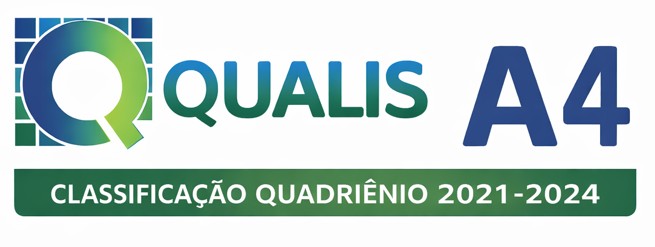Práticas educativas no combate ao racismo: discutindo estratégias para a Educação Infantil
Palavras-chave:
Preconceito racial, Práticas educativas, Educação InfantilResumo
O racismo define-se por um conjunto de teorias e crenças que estabelecem uma hierarquia entre as raças e etnias. No Brasil, o racismo e/ou preconceito racial é algo vigente principalmente quando nos remetemos ao contexto escolar. O presente estudo tem como objetivo identificar práticas educativas voltadas ao combate do racismo no âmbito da escola pública, sobretudo na Educação Infantil e nos Anos Iniciais do Ensino Fundamental. Para tanto, buscou-se por meio de um estudo bibliográfico as bases teóricas que contemplam a temática, especialmente aquelas que apresentam elementos concretos para aplicabilidade de ações que possibilitem mudanças de paradigma no contexto escolar e que estabeleçam, acima de tudo, uma educação antirracista, no combate a qualquer tipo de discriminação, e que desenvolva desde a infância, sobretudo dos alunos negros, um sentimento de pertença e valorização da sua identidade, o que acarretará na formação da autoestima. Somado a isso, espera-se que os alunos não negros alcancem uma consciência que possibilite compreender as diferenças que compõem a formação da sociedade brasileira. Nesse contexto, os resultados apontam um longo caminho a ser percorrido, principalmente quando se remete à educação antirracista, tendo em vista as dificuldades apresentadas por docentes ao tratar da temática, fazendo-se necessário formação continuada, pois professores/as qualificados/as apresentam repertórios capazes de viabilizar um giro epistemológico que contemplam nos currículos escolares não apenas concepções eurocêntricas, mas também africanas, afro-brasileiras, indígenas, asiáticas, haja vista a riqueza pluricultural, pluriétnica que compõe a formação do povo brasileiro, oportunizando às crianças compreender a importância do respeito às diferenças.
Palavras-chave: Preconceito racial. Práticas educativas. Educação Infantil.
Educational practices in combating racism: discussing strategies for Early Childhood Education
Abstract: Racism is defined by a set of theories and beliefs that establish a hierarchy between races and ethnicities. In Brazil, racism and/or racial prejudice is something that prevails mainly when we refer to the school context. This study aims to identify educational practices aimed at combating racism within the public school, especially in Kindergarten and in the Early Years of Elementary School. For that, through a bibliographical study, the theoretical bases that contemplate the theme were sought, especially those that present concrete elements for the applicability of actions that allow for paradigm shifts in the school context and that establish, above all, an anti-racist education, in combating any type of discrimination, and that develops from childhood, especially among black students, a feeling of belonging and valuing their identity, which will lead to the formation of self-esteem. Added to this, it is expected that non-black students reach an awareness that makes it possible to understand the differences that make up the formation of Brazilian society. In this context, the results point to a long way to go, especially when referring to anti-racist education, in view of the difficulties presented by teachers when dealing with the theme, requiring continuing education, as qualified teachers have repertoires capable of enabling an epistemological turn that include in school curricula not only Eurocentric conceptions, but also African, Afro-Brazilian, indigenous, Asian, given the pluricultural, multiethnic richness that makes up the formation of the Brazilian people, providing opportunities for children to understand the importance of respect for differences.
Keywords: Racial prejudice. Educational practices. Child education.










